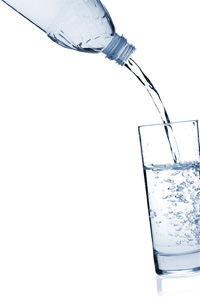With the steady decline in freshwater sources throughout the Gulf, clean water is being perceived as the new oil of the 21st century in the region. This has prompted governments to focus on wastewater treatment, recycling and reuse.
With the steady decline in freshwater sources throughout the Gulf, clean water is being perceived as the new oil of the 21st century in the region. This has prompted governments to focus on wastewater treatment, recycling and reuse.
One of the key strategies adopted by the Gulf Cooperation Council (GCC) countries to counter the effects of the global downturn was to intensify investments in infrastructure. The region’s leaders reasoned that critical growth factors, such as energy and water, had to be better managed to sustain economic development amidst the recession, and support diversification into non-oil businesses that could help their respective nations broaden their income sources. This foresight has allowed the region to soften the blow of sharp falls in global oil demand and the global decline in consumer and business confidence, witnessed over the past few years.
Watering the growth
 While oil defined the Middle East’s growth in the last century, water is significantly shaping the region’s destiny in the current one. Given its geographic location, the GCC, for one, is hard-pressed to optimise the use of its water resources. Water shortage is an ongoing threat in this region, which has to provide for a growing population and its sanitary needs, while meeting the growing water requirement of its various high-growth industries. Bahrain, Qatar, Kuwait, the UAE and the Kingdom of Saudi Arabia yield annual per-capita freshwater resources of approximately 100 cubic metres, falling far short of the internationally recognised minimal amount of 1,000 cubic metres water per person per year. Water and wastewater treatment infrastructure thus rank high in the development agendas of GCC countries.
While oil defined the Middle East’s growth in the last century, water is significantly shaping the region’s destiny in the current one. Given its geographic location, the GCC, for one, is hard-pressed to optimise the use of its water resources. Water shortage is an ongoing threat in this region, which has to provide for a growing population and its sanitary needs, while meeting the growing water requirement of its various high-growth industries. Bahrain, Qatar, Kuwait, the UAE and the Kingdom of Saudi Arabia yield annual per-capita freshwater resources of approximately 100 cubic metres, falling far short of the internationally recognised minimal amount of 1,000 cubic metres water per person per year. Water and wastewater treatment infrastructure thus rank high in the development agendas of GCC countries.
“Clean water is perceived as the new oil of the 21st century in this part of the world,” says Tawfiq Abu Soud, Managing Director, Drake and Scull Water and Power (DSWP). Clearly, more effective strategies are needed to balance the dwindling supply and skyrocketing demand. The good news is that the GCC governments have both the funds and the political will to roll out advanced and long-term water and wastewater management programmes. The next ingredients, then, are the right technologies and the right experts to fulfill their water-related agendas.”
There are many water treatment schemes currently being used in the GCC, including demineralisation, membrane technologies, clarification, and disinfection. The region is a global leader in membrane-based desalination technology, and with more wastewater treatment plants expected to adopt tertiary treatment, huge opportunities for wastewater treatment technologies, such as Membrane Bioreactors (MBR) are expected to arise.
Municipalities account for the majority of end users for water and wastewater treatment equipment, cornering 60% of the overall market in 2010. Industrial end users account for the remaining 40%. Municipal wastewater treatment is a priority area for local governments due to various reasons, such as achieving the UN’s Millennium Development Goals and concerns over the preservation of groundwater quality and the protection of marine ecosystems. In the industrial segment, oil and gas and petrochemical industries make up a huge 65% of the market. The six per cent average annual increase in water demand across the region has spurred a big boom in wastewater treatment and desalination plants, with all governments set to fund major water projects. Around 70% of investments are being channelled towards sewage and wastewater treatment plants, as the GCC is highly dependent on desalinated water – the region’s major clean water source – which is very expensive to process. The UAE alone plans to increase its desalination capacity by a staggering 76% to 14.1 million cubic metres a day this year.
The steady decline in freshwater throughout the Gulf means that the focus will shift to wastewater treatment, recycling and reuse. Recycled water is already widely used in landscaping and district cooling throughout the region.
The vital question
The important question the region needs to ask itself is: What will the Arab world do when it runs out of water? It is a question that the region will hopefully not have to answer, as it has started pursuing the use of advanced equipment, technologies and expertise to preserve the quantity and quality of its available water resources. With specialists being ushered into the field, the GCC is earnestly working towards laying out an effective water management infrastructure that will enable it to meet the needs of its people and the industries that fuel its progress.
Fact highlights
|
Copyright © 2006-2025 - CPI Industry. All rights reserved.